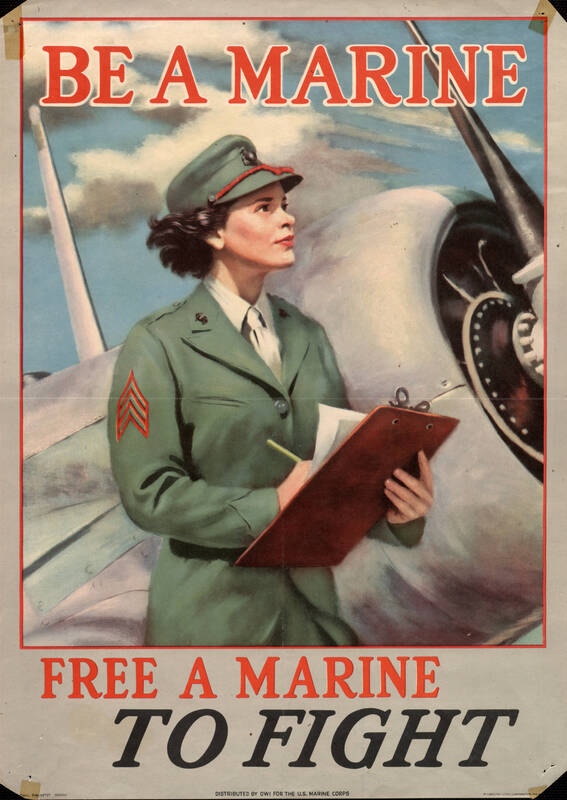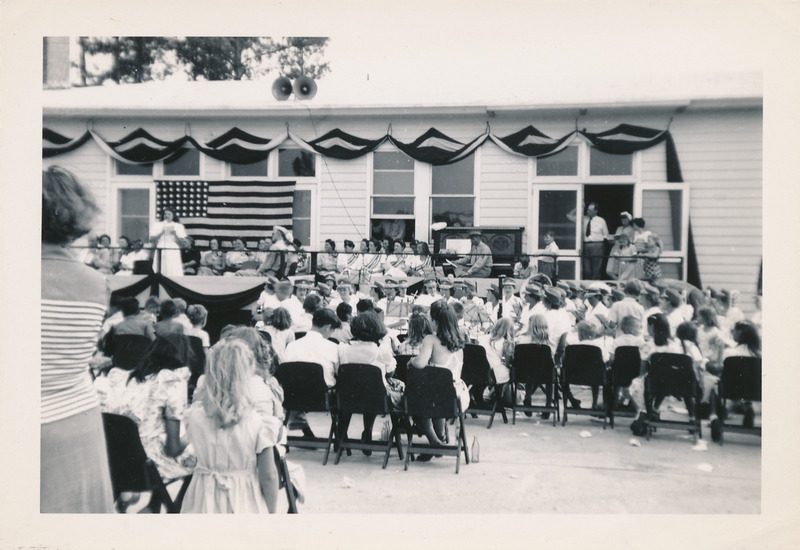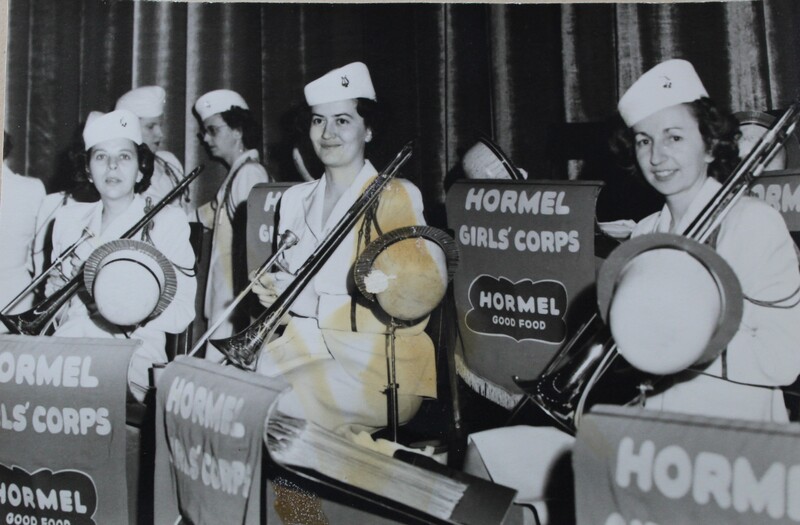Be a Marine, Free a Marine
World War II changed life for women on the home front, but in their involvement in the war effort as well. Women were encouraged to join the military bands. They were recruited in order to free up the military men in these bands so they could go fight. Joining these bands was a great opportunity for women as it opened doors for the future.
A key component in these gender role changes within the military is propaganda. More than any other previous war women were portrayed in propaganda posters. Their posters called for women to work more traditionally male occupied jobs, join the military, and buy war bonds.
The poster included here, reading “Be a Marine, Free a Marine,” encouraged women to participate in a new way.
We did push boundaries for women....we’re making progress, I think, but it has a way to go.- Eleanor Jones
Though the Marine Corps Women’s Reserve Band did not fight any battles, they were an important part of the war effort. The MCWRB proved to be effective both as a booster of morale and as a method of selling war bonds. The MCWRB performed all around the country, both in broader venues and at times sending a smaller detachment of the band, known as the “Dixieland Band” to perform for wounded soldiers returning from the front.
The Band’s effectiveness in selling war bonds placed them at the forefront of the six, seventh, and eighth, bond drives. A war bond was bought from the government with the promise of a greater sum being repaid to the buyer later. In total, the MCWRB was credited with raising seven million dollars' worth of war bonds.
At the end of the parade The Commanding Officer came up to Charlotte to speak glowingly about how much the men there appreciated our music, and on-and-on-and on he went.—Randy Anderson, reflecting on her time in the Marine Corps Band, 2005
Being in a military band was more than just a way to serve for many women, for the women of the MCWRB it was an experience that created lifelong friendships. For years after the women would perform in reunion concerts, and Eleanor often commented on the strong bonds created by the women of the MCWRB, later calling her time in the band "the beginning of lifelong friendships. I have never heard of another such bond as exists among all of us."
Serving in military bands also made a positive impact after the war for the those in it and women across America. For those in it the opportunity to become the best of the best as musicians opened many career opportunities. For women across America, it helped push the door open for more women in the workforce.
For Eleanor, it led to a career in the Hormel Girl Band, a touring group of female military veterans who performed to advertise Hormel products.



